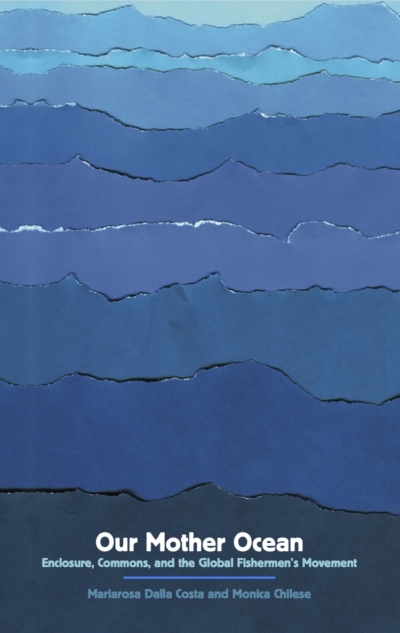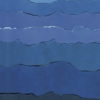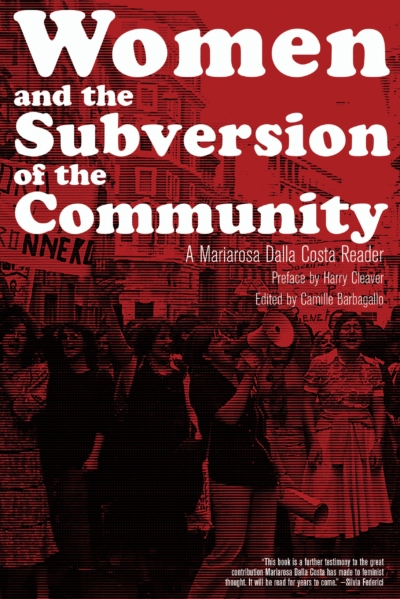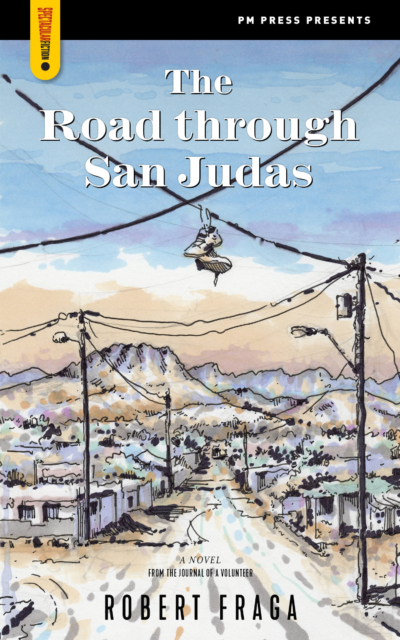The ocean today is a central protagonist in the ongoing battle for life on earth. It is the site of a violent clash between the right to live and the right to profit, as corporate interests enclose the ocean’s vast common of living riches through tourism and industrial fishing—distorting landscapes, depleting fish stocks, and destroying barriers to protection against climate disaster.
Our Mother Ocean tells the story of the Fisherman’s Movement from its beginnings in Southern India to its central role in the struggle against neoliberal globalization. Since the 1970s, the Fisherman’s Movement has been one of the ocean’s closest and most impassioned protectors, raising key questions concerning the relationship between work and the safeguarding of common resources, the provision of community needs and environmental limits of the devastating industrialization of our oceans. While a remarkable political awareness has spread over the last forty years around questions of food, agriculture and land, the issues of the sea have remained concealed, despite the protracted struggles between fish workers and those who oversee the sector and the exploitation of the ocean’s resources.
In this crucial intervention, Mariarosa Dalla Costa and Monica Chilese offer the ocean to the land-locked history of food sovereignty movements led primarily workers in the global South against dispossession.
Dalla Costa and Chilese draw attention to the polyvalent functions of the ocean as a source of food, medicine, raw materials, biodiversity and culture—and as a site of human labour and livelihood threatened by vast enclosures through industrial fishing and tourism. This book is an urgent reminder that the ocean is today the site of a heroic struggle for the preservation of life on earth. It points crucially to impassioned sectors of the movement of movements that endure in the global South, and details the stakes of the struggles and its outcomes on land and at sea as central for the future of life on earth.
Book Details
Author: Mariarosa Dalla Costa and Monica Chilese
Publisher: Common Notions
ISBN: 9781942173007
Published: March 1, 2015
Format: Paperback
Size: 8 by 5
Page count: 144 Pages
Subjects: Ecology/Social Movements/Globalization
Praise
- The emergence of [the] fisher as part of the movement against neoliberal globalization is beautifully understood in this book. I applaud the authors’ passionate portrayal of workers on the sea as an organic part of those of us who wish to protect Nature against the rapacious excesses of capitalism. —George Katsiaficas, activist and author, The Subversion of Politics and Asia’s Unknown Uprisings
- There is no apocalyptic randiness in this amazing account of the horror. Instead, we get a call as rigorous as passionate for what we all need to do now. The authors distill for the reader the almost overwhelming documentation they used in their very solid exploration of the subject, covering almost every aspect of it, and share their insights in an elegant and direct style. The World Fishers Movement, brilliantly described here, the biggest fishers movement in history, begins to do for Mother Ocean what Via Campesina, the biggest farmers movement in history, is doing for Mother Earth. In resisting the new enclosures, hundreds of millions of people are thus attempting to stop the devastating activity of corporate capital, in order to sustain their ways of life and ours. They need both our awareness and our action. This is the book we need for both. —Gustavo Esteva, author of Grassroots Modernism
- This book is indeed a timely one. With climate change and the exhaustion of natural resources the patriarchal/capitalist civilisation seems to be coming to an end. The authors remind us that Mother Earth and Mother Ocean are indeed the source of all life on our planet. Without earth no life; without oceans and water, no life. The authors criticize that the vital connection between humans and the sea, between humans and the earth has been disrupted by capitalist/patriarchal exploitation. The victims of this explotation are among others all the small coastal fishermen who lose their livelihood. However, the authors do not stop by only analysing these problems but show how people everywhere fight against this destruction. I warmly recommend this book to all who are concerned about future life on this planet. —Maria Mies, author of Patriarchy and Accumulation on a World-Scale and The Subsistence Perspective
- In Our Mother Ocean, Mariarosa Dalla Costa and Monica Chilese sound an eloquent warning about the precarious state of not only the planet’s fisheries but of the health of the world’s oceans themselves. They foreground the dilemmas facing fishermen’s movements in various continents, caught as they are between economic imperatives, the need to fish sustainably, and the pressures of multinational capitalism. This book is a thoughtful and necessary call to action. —David Gullette, Simmons College
- Through overfishing, industrial aquaculture, and poisoning, capitalism is killing ocean life—upon which all of life on Earth depends—but the people who are most directly threatened by this destruction are fighting back, and the rest of us urgently need to join their struggles. That is the story that unfolds in this remarkably detailed but compact book by Mariarosa Dalla Costa and Monica Chilese. To date, awareness of the killing has been mostly limited to the environmental movement. At the same time, awareness of the ways in which capitalism has been slowly destroying traditional communities of those who live by, on, and with the seas has been mostly limited to the peoples of those communities and, in the case of indigenous fishing communities, a few anthropologists. This book not only illuminates the interrelationships between these two patterns of destruction, but also highlights the emergence of a worldwide movement of resistance on the part of some of those most directly threatened. —Harry Cleaver, author of Reading Capital Politically
- Our Mother Ocean is an engaging and critical effort by Mariarosa Dalla Costa and Monica Chilese, who bring attention to the concerns, questions, and struggles relating to the seas and their remarkable social, economic, cultural, and ecological importance to human beings. This appealing book not only questions our relation with the sea but aims to raise consciousness about the way we live our lives and the ecologic problematic we all face globally. Stressing the ‘polyvalence of the vital functions which the ocean represents,’ the authors explore how the relation of humans with the sea has become one of depredation and destruction for commercial purposes. The book deals with the implications of industrial fishing, aquaculture, aquafarming, and marine pollution, thus exploring not only the appalling consequences and damage for the marine and coastal ecosystems, but for the small communities all over the world whose livelihoods depend on the sea and who have been affected by this approach to the sea as a ‘usable object.’ It is in this context that the authors brilliantly relate the path of the movement of fishermen, a movement born in the seventies in India that has now spread all over the world. Under the banner of food sovereignty, this movement fights the neoliberal predatory assault and view of sea life as mere products, while struggling to establish a different relationship with the sea, a sustainable relationship with this source of life that ensures the protection of both the small coastal communities who ‘have always lived on the sea and of the sea’ and the sheltering of the beauties, habitats, and ecosystems of our mother ocean. —Massimo Modonesi, professor of history, sociology, and Latin American studies,director of the Department of Sociology of Universidad Nacional Autónoma de México, Mexico City
- “In this lyrical text, two political scholars contest the global neoliberal assault on life through the prism of the sea, with its threatened species and courageous fisher peoples. Their impeccable research will bring validation, inspiration, and empowerment to the worldwide struggle of communities for food sovereignty and sustainable life-affirming cultures.” — Ariel Salleh, University of Sydney






